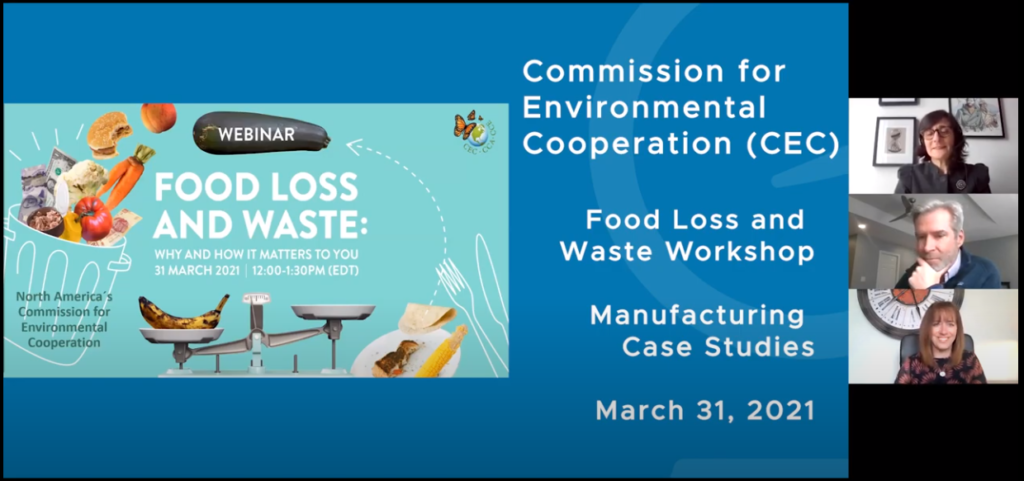Bimbo Canada’s Conservation Saves a lot of Dough

Projects Sponsor
Bimbo Canada’s Food, Energy & Water Conservation Work with Enviro-Stewards Saves a lot of Dough
Grupo Bimbo is the world’s largest baking company with operations in 32 countries and they have a vision to transform the baking industry to better serve consumers, operating as a highly productive and deeply humane company.
What Bimbo Canada aimed to achieve was a 50% reduction in food waste by 2025 as well as a 29% drop in water use, a 31% drop in electricity usage, and a 12% drop in thermal energy use. Having set themselves these aggressive targets, Bimbo Canada researched potential engineering partners to help them reach their objectives.
Ultimately, based on discussion with managers of other corporations and Bimbo’s own past experience working with Enviro-Stewards through regional water conservation programs in Toronto and York Region, Bimbo Canada chose to work with Enviro-Stewards in all of their facilities.
The key objectives for the project were to identify short-term and longer-term initiatives that could be implemented at specific plants in order to reduce water and energy consumption and curtail food loss at the source. Thus, food loss prevention assessments were conducted at four of Bimbo Canada’s facilities under the (Clean50 Award Winning) Canadian Manufacturing Food Loss Prevention Program.

Knowing the specific reduction potential and cost of implementing each aspect of the plan helped enable the development of achievable project roadmaps specific to each location. Best practices already deployed at individual Bimbo plants were identified and shared across the country for further implementation.
The food industry is under tremendous pressure to improve efficiency, increase innovation and automate to counterbalance the severe labour shortage. That means that the local teams at the plant have an extensive project list already and this was going to be one more thing. As such, increasing engagement and understanding among Bimbo employees through education and direct participation in the process was crucial to the project’s success.
Communication with all levels of the Bimbo team, early and often, but only where their direct participation was absolutely required helped overcome that barrier to success. As well, identifying and implementing any ‘quick wins’ to be had and sharing the ensuing results and other victories achieved—such as becoming the subject of a Commission for Environmental Cooperation (CEC) North American case study and speaking at the CEC’s Food Loss Prevention Webinar—offered morale-boosting immediate returns.

The COVID-19 pandemic added one more pressure to Bimbo’s climate change fighting endeavour. As a food manufacturer, their business was an essential service and therefore, open and operating throughout the pandemic. But, given the nature of their work, workers in food production facilities could not physically distance themselves in all areas of their workplace.
In order to avoid a COVID-19 outbreak at a facility, which would have resulted in plant closure, a policy of complete and total lack of access to the facilities by anyone who did not directly work on the production lines (including Bimbo Canada staff and executives, not just outside contractors) was put in place.
As a result, Bimbo needed to postpone and reschedule the majority of assessments in late 2020 and early 2021, delaying their implementation plans. This delay could well have resulted in a decrease in engagement and enthusiasm in the plants, vital to the project’s success. But, ongoing communication with facilities, keeping them well-informed of each provincial public health restrictions and impacts helped avoid a loss in goodwill and a downturn in buy-in. Progress meetings with the local facility team to validate assumptions and potential opportunities followed each assessment.
Based on the initial success of the project, food loss prevention is being rolled out to the remainder of Bimbo Canada’s facilities during 2021. For efficiency and greater impact, water conservation and energy efficiency assessment is being conducted concurrently with food loss prevention at each facility.
To date, the company has made changes that will save them the equivalent of 5.5 million meals of food, 2,200 tonnes of greenhouse gas emissions, and $2,800,000/yr of operating costs.
That’s a lot of dough, even for Bimbo Canada, and knowing they’re contributing to a greener more sustainable future is the icing on the cake.













